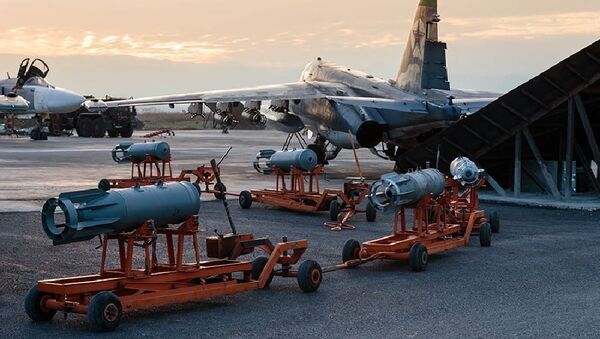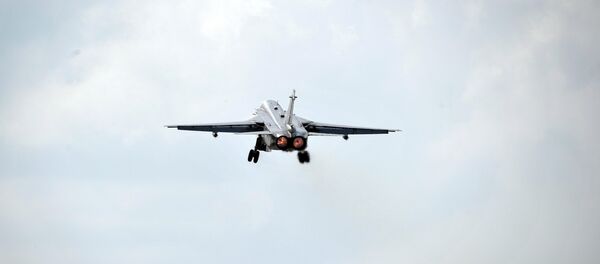Earlier this week, the Russian Defense Ministry's spokesman Maj. Gen. Igor Konashenkov said that the alleged Russia-US "close calls" in Syria are a "nonexistent problem" and the US has not raised any concerns during regular video conferences.
Russian pilots are very professional, and in the course of their work they observe all safety precautions, Konashenkov explained.
#Russia in #Syria—#alBab#RuAF carried out 12 air raids on Sunday targeting #ISIS positions east of al-Babhttps://t.co/Aa3BAx24fc
— John Delacour (@JohnDelacour) 9 января 2017 г.
This statement came as a response to an earlier report by the Wall Street Journal, which cited Brig. Gen. Charles Corcoran, the commander of the 380th Air Expeditionary Wing, as saying that Russian planes in Syria allegedly came close to US aircraft despite a US-Russian agreement which was signed in October 2015 to mitigate incidents in Syrian airspace.
"It is difficult to understand whether the statements made by General Corcoran are his honest opinion or if he, like many others, was used by the outgoing US administration during the course of their Russophobic farewell spectacle," Konashekov said.
He was echoed by Konstantin Sivkov, who suggested that General Corcoran was ordered to tell about the "close calls" in Syria.
"I have information which indicates friendly ties between the American officer corps and their Russian colleagues in Syria. I think that Corcoran was ordered to make his statement, which is in line with all other well-planned actions by the United States under the Obama Administration related to the information campaign," Sivkov said.
All these actions are intended to sour Russian-American relations, according to him.
"Corcoran's statement along with a new sudden proposal on expanding anti-Russian sanctions, Obama's statements in his farewell speech, and those by the US Secretary of Defense that Russia allegedly does not do anything in the fight against Daesh are elements of an information war," Sivkov added.
He said that those who launched the current information campaign want to completely neutralize the Russian contribution to the fight against terrorists in Syria.
"The authors of this information operation try to make people think that it is Russia which prevents the resolution of the Syrian conflict by allegedly siding with Daesh and keeping the US from effectively fighting the terrorists. So I think that Concoran talking about the Russia-US 'close calls' is a far-fetched issue," Sivkov concluded.
"There are no reasons to provoke the coalition, which has done nothing in Syria, at a time when the political resolution of the Syrian conflict is looming. This formal nitpicking is solely meant to delay the political resolution and help them gain maximum advantage in this process," he explained.
Never miss a story again — sign up to our Telegram channel and we'll keep you up to speed!





